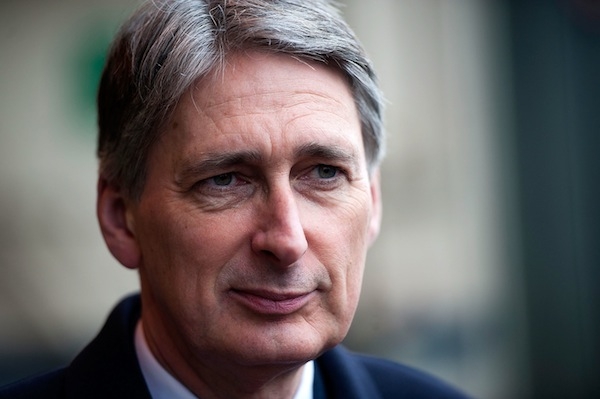Today’s papers carry news that British nuclear submarines are going to be replaced: a strong indication that the government will replace Trident with a like-for-like deterrent in 2016, contrary to the wishes of the Liberal Democrats. Philip Hammond appeared on the Sunday Politics earlier today to answer questions from Andrew Neil on Trident and manpower cuts to the army.
Hammond said that the Trident decision has not been taken. The government is, he said, simply ensuring that Britain can implement whatever decision is taken. On army cuts, he said, ‘We [Britain] will still be able to make a major contribution to a cross-alliance operation.’ The rum suggestion being that Britain’s place in the world will not be diminished by a dramatic reduction of the military establishment.
Hammond turned to the spending landscape after 2015, when defence spending is set to increase by 1 per cent in real terms every year. Andrew Neil pointed out that George Osborne’s spending plans have changed since the 2010 defence review: further cuts will be required in 2016 and 2017 to eradicate the deficit. Hammond was confident that the Treasury would honour its agreement.There was an unspoken subtext here: Fox and Hammond have defended personnel cuts and programme cancellations on the grounds that excessive debt is a threat to national security. Has the government’s decision to slow its deficit reduction strategy and increase the national debt changed the MoD’s analysis?






Comments